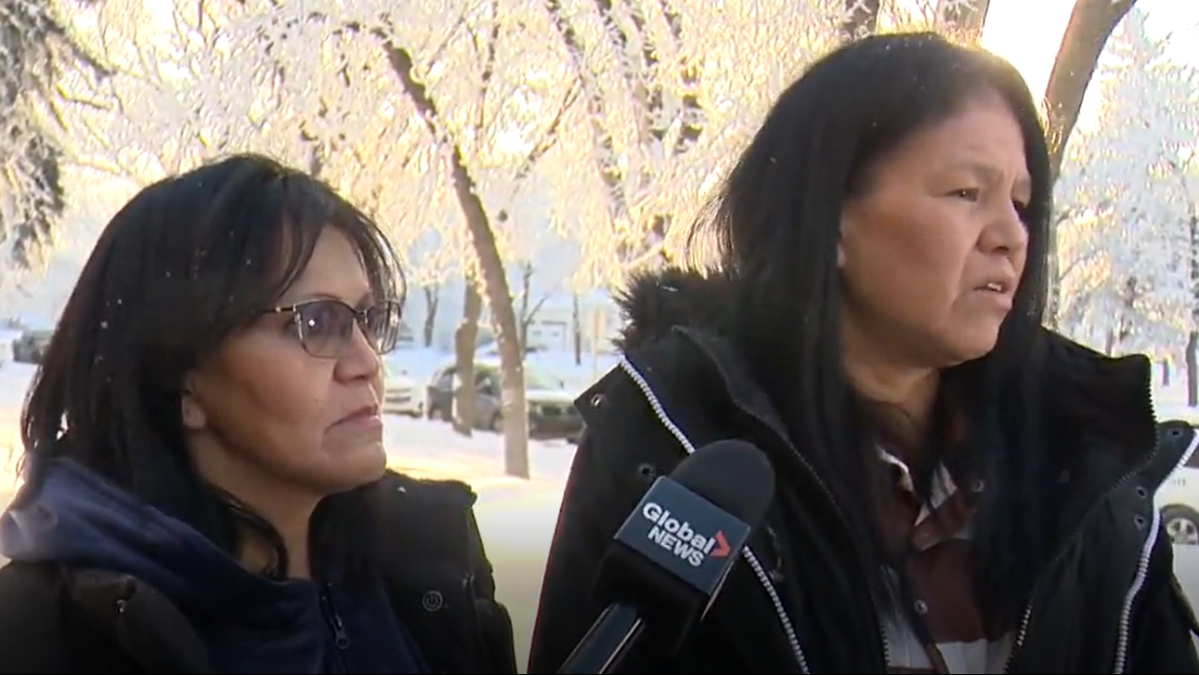Following two days of cross-examination and argument, Yorkton, Sask., Justice Donald Layh has reserved judgment on a bail application for two sisters convicted of murder in Saskatchewan in 1994.

Layh has requested the applicant, lawyer James Lockyer, prepare a more detailed plan for the release of Nerissa and Odelia Quewezance, including what options they would have for social support and employment should bail be granted.
The Quewezance sisters are both serving life sentences and neither have received full parole, but are hoping for conditional release while a federal review of their conviction moves forward.
Layh, Lockyer and Crown prosecutor Kelly Kaip, who opposed the bail application, will reconvene via conference call on Feb. 23, after which a written decision will be issued by Layh.
“We had a good hearing for two days before Mr. Justice Layh,” Lockyer said outside Yorkton Court of King’s Bench following the hearing.
“We’re very hopeful, and we’re going to see, but we’re going to have to wait six to eight weeks to get a decision..”
Nerissa and Odelia Quewezance were convicted of second-degree murder following the killing of Anthony Dolff near Kamsack in February, 1993. The sisters, who were 18 and 21 at the time, have always maintained their innocence.
- Posters promoting ‘Steal From Loblaws Day’ are circulating. How did we get here?
- Video shows Ontario police sharing Trudeau’s location with protester, investigation launched
- Canadian food banks are on the brink: ‘This is not a sustainable situation’
- Solar eclipse eye damage: More than 160 cases reported in Ontario, Quebec
While the sisters testified that they were at Dolff’s home the night of his death, their cousin, a youth at the time who was also present that night, has actually confessed to the murder.
The sisters’ case is now the subject of an application for ministerial review, which could result in a retrial or referral of the case to a court of appeal should a miscarriage of justice be found.
As reported by APTN, the Canada Department of Justice confirmed to Lockyer last summer that the sisters’ case had proceeded to the investigation stage of Canada’s conviction review process. Lockyer works with Innocence Canada which specializes in exoneration.
Throughout the hearing, Justice Layh reminded counsel that the bail application would be evaluated considering specific criteria including the potential benefit to the public of release.
Nerissa and Odelia took the witness stand Tuesday, taking questions from both Lockyer and Kaip.
Dolff’s family members heard the sisters detail to Lockyer their efforts to make themselves more employable, to seek out therapy for mental health and additions challenges and to volunteer in their communities while on parole.
Jay Koch, Odelia’s long term partner, and Congress of Aboriginal Peoples vice-Chief Kim Beaudin were also called to the stand. Both stated they would house the sisters should they be granted bail.
Meanwhile, in cross-examination Kaip called into question the sisters’ criminal histories both before and after the murder conviction, and had them detail setbacks in efforts to be granted full parole including extended periods of being unlawfully at large.
She then questioned Koch and Beaudin on their willingness and ability to enforce any conditions set by the judge on the sisters’ potential release,
Arguments commenced Wednesday.
Lockyer recounted similar cases where bail has been granted, such as the case of Wade Skiffington. Skiffington was granted bail in 2019 pending completion of his conviction review after being convicted of second degree murder and sentenced to life in prison in 2001.
Just last month, Canada Justice Minister David Lametti referred the case to the British Columbia Court of Appeal, stating that “there is a reasonable basis to conclude that a miscarriage of justice likely occurred.”
He also argued that the sisters, who come from Keeseekoose First Nation, may have faced discrimination after being arrested and held at a Kamsack RCMP detachment staffed only by white officers. He suggested this may have influenced statements given by the sisters at the time, and that considering the sisters’ history as residential school attendees granting bail could be considered an act of reconciliation.
Kaip, meanwhile, spent significant time highlighting evidence brought forward in the 1994 murder trial, including testimony from the sisters that they were at Dolff’s home the night of his death, and that a violent confrontation with Dolff did occur. As she recounted chilling details about Dolff’s stabbing death, his family members became audibly emotional in the courtroom.
Pointing out no new evidence was brought forward to comtradict what was heard, she argued the Quewezances’ release would not be in the public interest.
But ultimately, Justice Layh decided he needed more information and deliberation time to make a decision.
Speaking outside of the courthouse, following proceedings Odelia said she leaves the hearing optimistic.
“It’s not no,” said Odelia, who is currently on day parole, moments after Nerissa was led away by RCMP in handcuffs.
“They just need a proper plan. It’s definitely not a no.”




Comments